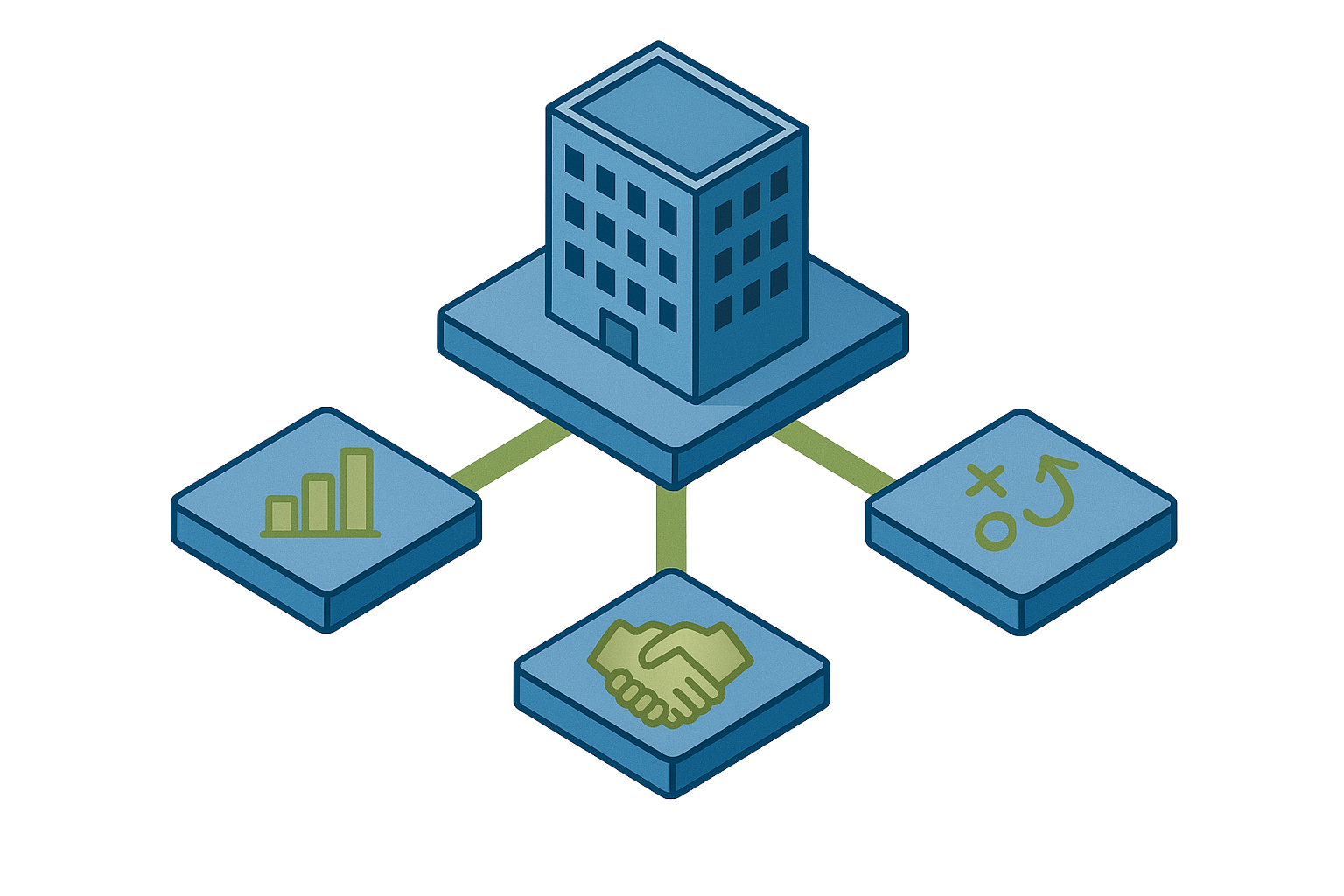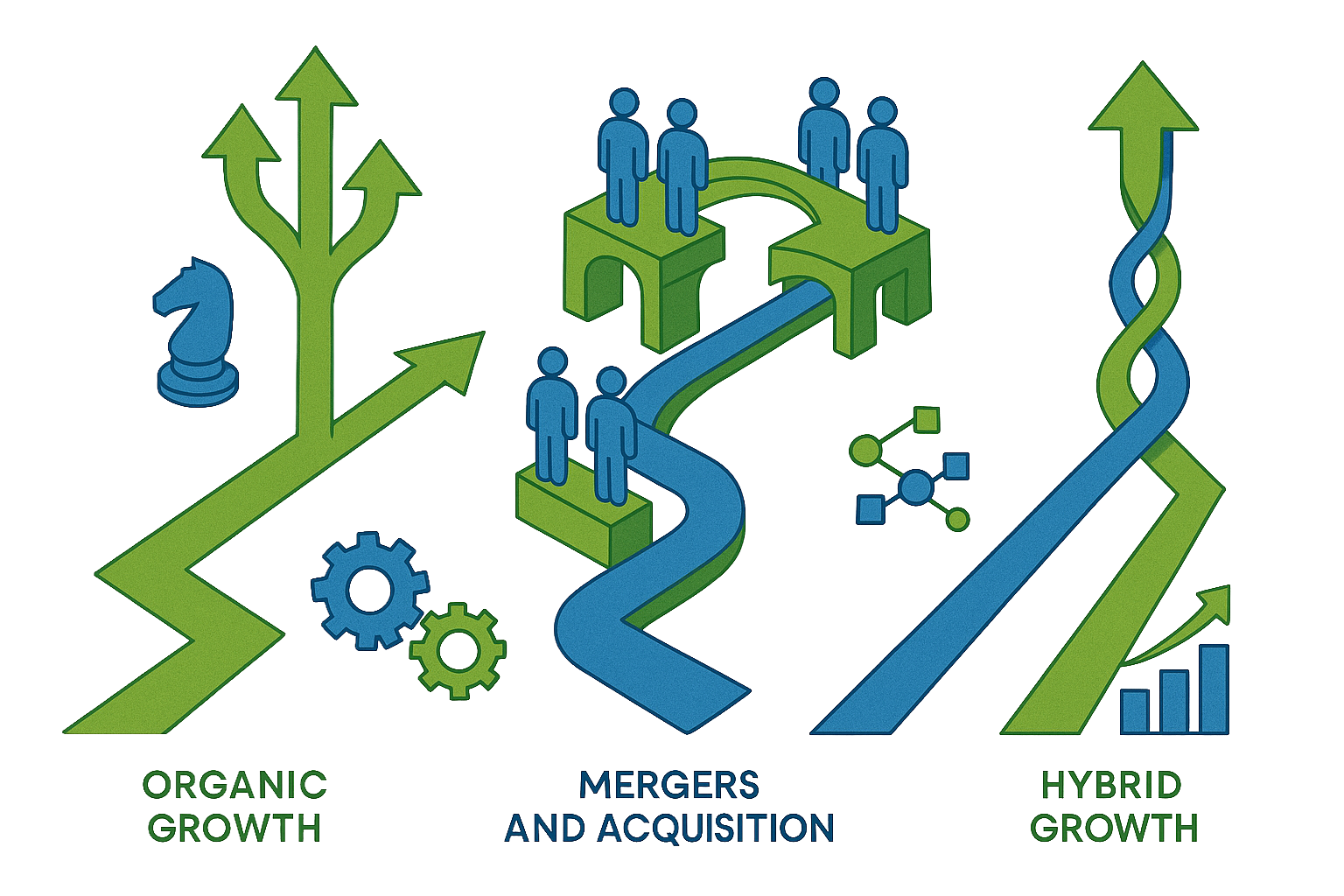Evolving for Growth: Why Mid-Market Accounting Firms Must Expand Their Advisory Services
In today’s fast-evolving accounting landscape, mid-market firms face both a pressing challenge and a powerful opportunity. Traditional compliance...
4 min read
Christine Hollinden : Sep 24, 2025 9:00:00 AM

Professional services leaders have long debated whether it is better to be a generalist or to carve out a niche. Generalist firms cast the widest net but often find themselves competing on price, stretched thin, and undifferentiated in the market. Niche firms, by contrast, earn reputations as the go-to experts for a defined audience. That clarity changes the growth trajectory.
Specialization takes many shapes. The most visible is the industry vertical: healthcare practices, nonprofits, construction, or technology startups. Others carve a path through service-line focus, such as client accounting services (CAS), valuation, SOC audits, or ESG reporting. A third model blends the two: outsourced CFO services for veterinary practices or ESG assurance for mid-market manufacturers.
At its core, specialization means more than narrowing your focus. It is a commitment to depth: expertise deeper than competitors, authority anchored in data and research, and messaging that is sharper than “we do everything for everyone.”
The numbers tell a clear story. Client Accounting Services and value-based pricing offer one of the best illustrations of specialization at work.
The 2024 CAS Benchmark Survey by CPA.com and AICPA PCPS reported that firms with more than half of their CAS revenue concentrated in defined niches achieved a median 20% revenue growth and projected another 17% for the following year. Those who focused grew faster, period.
Pricing reinforces this reality. The 2025 Thomson Reuters Tax and Accounting Firm Pricing Report found that specialized firms are far more likely to adopt subscription or value-based pricing with confidence. Generalist firms, in contrast, often struggle in the “pricing confidence gap,” unsure whether their fees align with the value they provide.
When you know your market, you can define your value. When you define your value, you can price accordingly.
Specialization is powerful, but it is not a free pass. With sharper focus comes sharper risk. If regulations change or the market slows, concentration can feel like vulnerability. If your niche is too narrow or your client base too concentrated, a single disruption can ripple through the entire firm.
It also demands investment. Authority is not claimed; it is earned. Training programs, niche-focused certifications, proprietary research, and thought leadership must become part of your operating rhythm. Without them, specialization risks becoming a hollow marketing tagline.
Common pitfalls include:
Specialization creates opportunity, but only if paired with discipline.
The best niche is not always the one that makes the splashiest headlines. It is the one where your firm can create durable value, scale efficiently, and stand apart.
Ask your leadership team:
Patterns often reveal themselves. A nonprofit practice may discover unmet needs in grant compliance and board reporting. A SaaS-heavy client base may surface recurring challenges in revenue recognition. In both examples, specialization is less about invention and more about recognition, seeing where your current strengths align with real client demand.
Testing is possible before committing. Pilot a new service line, launch a research series, or roll out a targeted campaign. If traction builds, double down.
Specialization succeeds when it becomes operational, not just promotional. To scale, the niche must shape how you deliver services, design teams, and measure performance.
Service design and delivery: Create standardized processes, templates, and workflows that reflect the nuances of your chosen market. Efficiency improves when teams handle familiar situations repeatedly.
Pricing models: Consider fixed fees, bundles, or subscription pricing. Specialized firms are better positioned to explain value clearly, which makes non-hourly billing models more feasible.
Talent and expertise development: Build internal expertise through niche-specific training, certifications, or by hiring professionals with direct industry experience. Designate “owners” of your niche who are accountable for quality and innovation.
Marketing and positioning: Make your niche unmistakable in every client-facing touchpoint, from website messaging to proposals to thought leadership. Publish insights, case studies, and benchmarks that only a specialist would know.
Measurement and governance: Treat the niche like a business line. Track metrics such as lead conversion in your target segment, pricing realization, client retention, and employee engagement. Hold leaders accountable for outcomes.
In a crowded marketplace, firms that are known for something grow faster, charge more confidently, and attract better clients and talent. Specialization creates clarity for clients who are evaluating options, for staff who want to develop expertise, and for partners who need to prioritize investments.
Focusing does not limit opportunity. Specialization makes growth more efficient, reputation more durable, and long-term strategy more achievable. Contact Hollinden today to learn more about how we can support the growth of your firm.
What if our current client base is too diverse to specialize?
Start by segmenting your clients. Look for clusters of industries or services where you already have momentum. Experiment with targeted marketing or pilot offerings before narrowing fully.
How narrow is too narrow?
If your potential market cannot support sustainable revenue or if your pipeline depends heavily on a few clients, your niche may be too narrow. The right balance is focus with enough breadth to scale.
Can a firm shift from generalist to specialist successfully?
Yes. Many firms evolve by identifying their most successful client segments and building on them. The transition requires deliberate communication, client selection, and often letting go of work that no longer fits.
How long does it take to see returns from specialization?
Firms often see marketing efficiency gains quickly, but reputation and premium pricing take time. Most see measurable impact within 12–24 months if the strategy is well-executed.
What pricing mistakes do specialized firms commonly make?
Undervaluing expertise, sticking with hourly billing when value is clear, and failing to communicate outcomes in client language are common missteps. Pricing confidence comes from demonstrating and articulating niche expertise.
The Hollinden Point of View brings you monthly insights tailored to helping you grow your firm.

In today’s fast-evolving accounting landscape, mid-market firms face both a pressing challenge and a powerful opportunity. Traditional compliance...

As accounting and advisory firms grow, complexity is inevitable. What starts as a small, nimble team can quickly turn into a slow-moving operation if...

Growth in professional services is never accidental. Unlike product-based companies that can rely on distribution, scale, or inventory, professional...